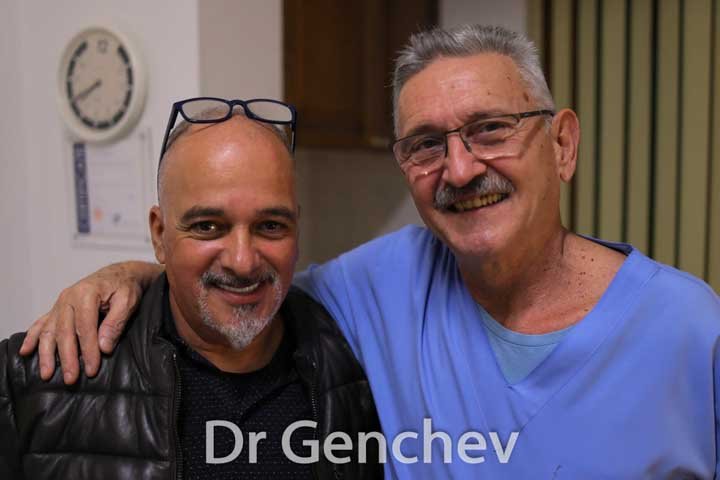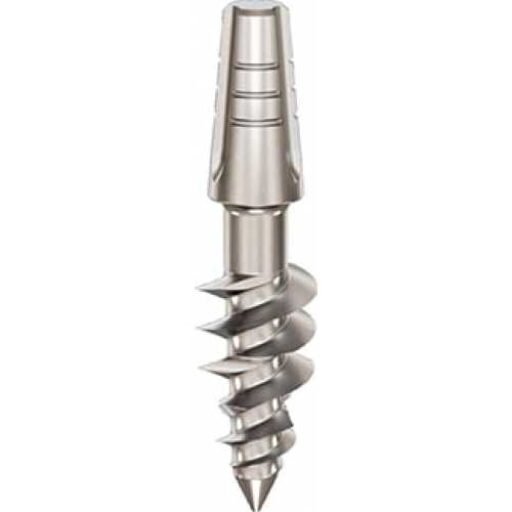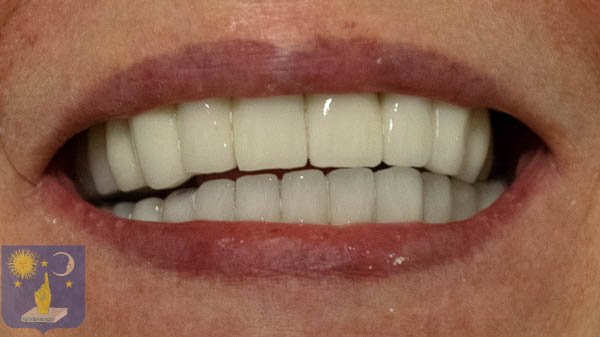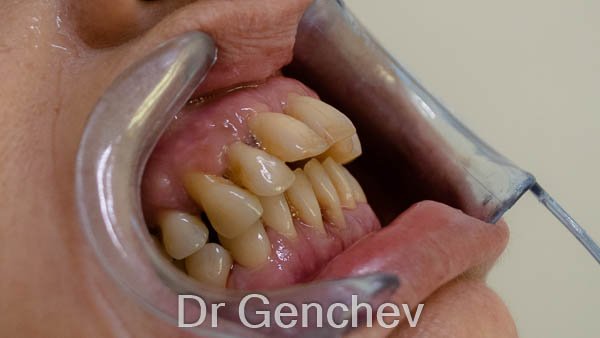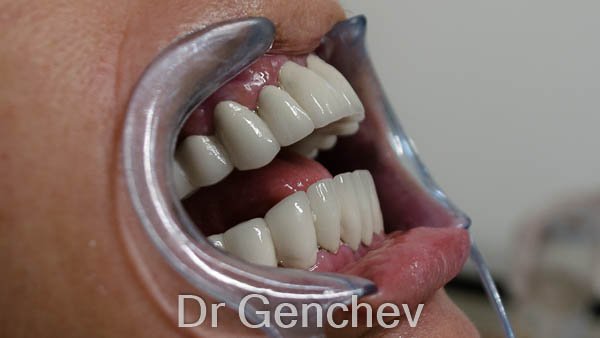How basal implants treat gum disease
Basal implants treat the symptoms of periodontal disease and restore complete dentition to the patient. Basal implants system resolves the symptoms of gum disease: loosening of teeth, tooth loss and bone loss.
Basal implants have the advantage of not depending on the cancellous bone of the gums that disappears as a result of periodontal disease.

What is gum disease?
What are the symptoms of periodontitis?
Gum disease also known as periodontitis is an inflammation of the soft gum tissue around the roots of teeth. It is characterized by resorption of gum tissue, leading to loosening and then the loss of teeth. In the initial stage, periodontal disease can be controlled and, in some cases, cured. In the later stage, a full dental restoration with basal dental implants can counteract the symptoms of gum disease: the loosening of the teeth and edentulism.
Gum disease is characterized by resorption of the gums and loosening of the teeth. If left untreated, teeth begin to fall out. Over time, a chain reaction occurs, culminating in the loss of all the teeth – total edentulism.
Treatments for gum disease with basal dental implants
How can periodontitis be treated with basal implants?
Basal dental implants are the best solution for treating gum disease because they are longer and fixed in the cortical bone, which is harder and deeper than the root of the tooth. They do not depend on the soft cancellous bone of the gums. They are therefore unaffected by the gum resorption associated with gum disease
Implant dentists specializing in basal implantology generally extract all teeth that are not stable. Some stable teeth, such as canines, can be retained and used with implants to support the denture.
Loosening of teeth
How can we prevent teeth from loosening?
When periodontal disease reaches the stage of tooth loosening, it’s necessary to extract unstable teeth and replace them with basal implants. Stable teeth can be retained and filed to support the fixed dental bridge.
The advantage of basal implantology for cases of gum disease is that all remaining teeth and basal implants are blocked under a full bridge of 14 crowns. This prevents tooth movement and helps regenerate the bone around the tooth roots. In this way, the loosening of the teeth is prevented.
Tooth loss
How do I replace missing teeth?
When periodontal disease reaches the stage of tooth loss, it is necessary to replace the teeth with basal dental implants.
In basal implantology, missing teeth are replaced by implants along the entire length of the jaw, including behind the sinuses. Pterygoid implants are fixed behind the sinuses to recreate the natural functionality of the mouth and allow the patient to chew normally with the molar teeth.
Lack of bone
How to compensate for bone loss without bone grafting or sinus lift?
Basal implants are fixed in the cortical bone. And cortical bone is part of the cranium that does not disappear with tooth loss. Basal dental implants do not depend on the cancellous bone of the gums like conventional implants. So there’s no need for bone grafting or sinus lift.
Before and After Basal Dental Implants for Gum Disease
Full mouth dental restoration for severe periodontal diseases with receding gums.
The benefits of basal dental implants
What are the advantages of basal implants for treating periodontitis?
In cases of severe gum disease, the advantage of basal implants is that they compensate for bone loss, while avoiding sinus lift and bone grafting. Basal implants do not depend on cancellous bone. It is fixed deeper into the cortical bone.
Disadvantages of conventional dental implants
What are the limitations of conventional dental implants for treating periodontal disease?
One of the symptoms of periodontal disease is that the bone holding the teeth retracts, causing the teeth to loosen. Conventional implants are placed in this same cancellous bone, which resorbs and can cause traditional dental implants, that are too short, to loosen.
In patients with severe gum disease, this cancellous bone is not reliable to fix traditional implants. Due to the lack of spongy bone of the gums dentists that practice conventional implantology recommend bone grafting and sinus lift. But, for patients with advanced gum disease, these are expensive and useless procedures.
Limitations of the All on 4 system
What are the problems of using the All on 4 system to treat gum disease?
The All on 4 dental restoration system is not a good solution for patients with severe gum disease. The implants are too short and are placed in resorbing cancellous bone. What’s more, too few implants are placed. There are 4 to 6 on each jaw. And they are placed only at the front of the jaw. There are no implants behind the sinuses to replace the molar teeth that are made for chewing.
With the All on 4 and All on 6 system, it’s difficult to achieve a complete dental restoration for a patient suffering from severe gum disease. And, even if the implants set in the cancellous bone, there’s a risk of loosening when the bridge is loaded onto the implants. The All on 4 Xtra system is an improvement with basal implants.
Comparison of basal and conventional dental implants for gum disease
Basal implant

long implant

cortical bone

no resorption
Classic implant

short implant

cancellous bone

bone resorption
Alternatives to dental implants
What are the alternatives to dental implants for treating periodontal disease?
It is difficult to replace missing or loosening teeth without using basal implants. The only alternative is total extraction of the teeth and fitting removable prostheses that are fixed with glue.
How is basal dental implantation performed?
How does the dentist place basal dental implants for patients with severe gum disease?
In cases of severe gum disease, basal dental implantation is performed in one five-day visit. The implantologist will extract any teeth that are unstable or moving. Stable teeth, however, can be retained and filed to support the fixed dental bridge. Where teeth are missing, he will add implants along the entire length of the jaw to create support points.
Typically, in cases of gum disease, patients have a dozen points of support on the upper jaw and 8 to 10 points of support on the lower jaw. The dentist uses stable teeth unaffected by periodontal disease and places implants where teeth are missing. A full bridge of 14 crowns is placed on top.
How long does it take to treat gum disease?
How long does it take for a complete dental restoration to cure periodontal disease?
With immediate-load basal dental implants, dental restoration takes only 1 5-day visit.
Results for full dental restoration to treat gum disease

Testimonials for periodontitis treatment
Testimonials from patients who suffered from periodontal disease with tooth loss and receding gums that underwent a full mouth dental restoration with basal implants.
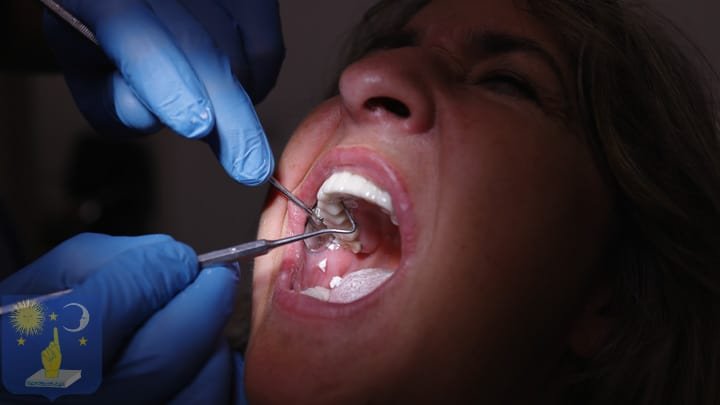
Photo for basal dental implants for periodontal disease
Discover the photos of basal dental implants to treat gum disease with receding gums, missing teeth and bone atrophy.
Basal implants for gum disease
See photos of full dental restorations with basal implants for patients suffereing from severe periodontal disease.

Dr Genchev
Basal Implant Dentist
Dr Georgy Genchev is one of the best specialists for Full Mouth Dental Implants. He specialises in patients with gum disease and severe bone loss.
He has over 12 years experience in full dental rehabilitation with basal dental implants.
Ask for a free online dental consultation

1 visit 5 days

2 jaws €8990

Bulgaria
Request a Call Back
Fast Response
For a fast response please call Dr Genchev for free directly via WhatsApp or send him an email.

Basal dental implants for smokers
Basal dental implants are the only long-term solution for smokers. Basal implants are unaffected by the heat of the cigarette smoke.
Basal dental implants for diabetes
Basal dental implants are recommended for patients with diabetes because they are well integrated into the cortical bone.
